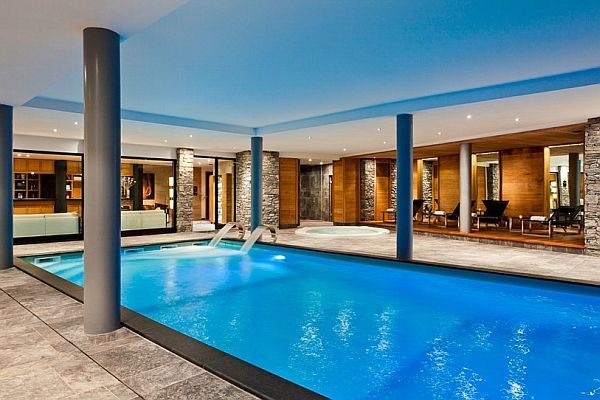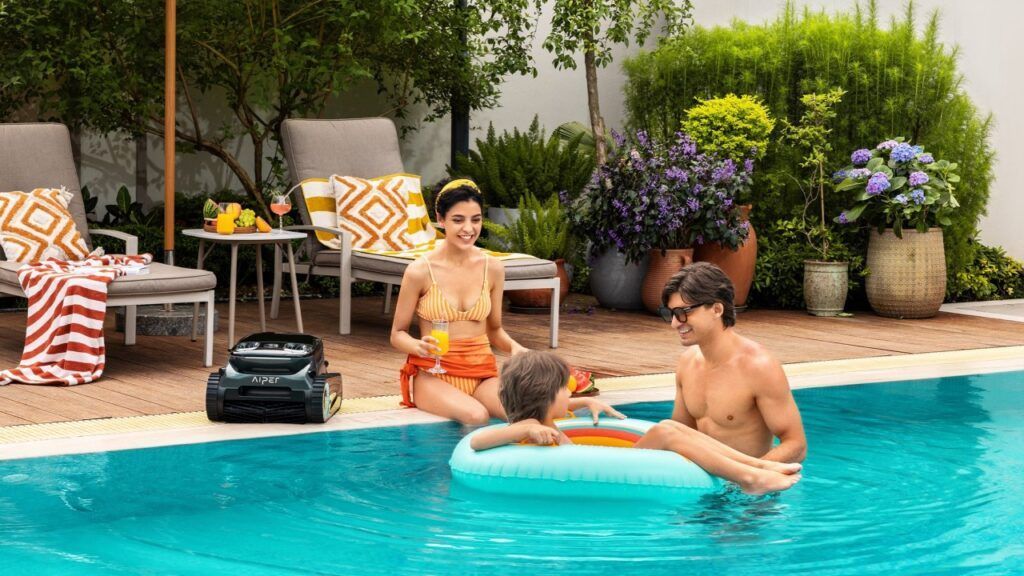Cleaning a pool might seem like a straightforward task, but doing it like a pro requires more than just a good pool cleaner and some basic equipment. From ensuring that your pool’s chemistry is on point to understanding the nuances of different pool surfaces, there’s a lot to consider. To help you clean your pool like an expert, we spoke to seasoned pool cleaning professionals who shared their techniques, tools, and insights for achieving spotless results every time.
Expert Recommendations on Cleaning Methods
When it comes to cleaning a pool, it’s essential to take a systematic approach. According to industry experts, the first step to professional-grade pool care is to regularly check and balance the pool’s water chemistry. “The water’s pH level and chlorine concentration are foundational to the cleaning process,” says Tom Miller, a pool cleaning specialist with over 15 years of experience. “If the chemistry isn’t right, no amount of cleaning is going to leave your pool sparkling clean.”
Tom recommends checking the water’s pH level, alkalinity, and chlorine concentration at least once a week, especially during high-use seasons. He notes that the pH should be between 7.4 and 7.6, and the chlorine level should be between 1-3 ppm (parts per million). “Proper chemistry ensures that the pool cleaner works effectively,” he adds, “because clean water is easier to filter and maintain.”
Next, it’s important to remove debris from the pool before it has the chance to settle. This includes using a leaf skimmer to remove larger items like leaves, twigs, and bugs, and a vacuum to remove smaller particles from the pool floor. “We recommend cleaning the pool’s surface daily to prevent debris from sinking and contaminating the water,” says Sarah Wright, a pool maintenance professional who specializes in high-end luxury pools. “A cleaner pool makes the entire process much easier.”
Pool Cleaner Reviews from Professionals’ Perspectives
Professionals have a unique perspective on pool cleaners because they use a variety of models in their daily work. When asked about the best pool cleaner for routine cleaning, both Sarah and Tom were quick to mention robotic pool cleaners as the gold standard. “In my experience, robotic pool cleaners are hands down the most efficient option,” Tom says. “They’re self-contained, which means they don’t rely on the pool’s pump or filtration system. Plus, they navigate the pool with advanced algorithms, making sure every inch is cleaned.”
Robotic cleaners, like the best pool cleaner models on the market, are also equipped with powerful suction and brushes that can scrub away dirt and debris from walls and floors with ease. Sarah recommends a model with a strong filtration system. “We prefer cleaners that filter down to fine debris, including sand and algae. This is especially important for pools with saltwater systems or high levels of organic matter,” she explains.
Sarah also stresses the importance of choosing a pool cleaner based on the specific needs of your pool. “For example, if you have a pool with a lot of leaves or large debris, a suction-side pool cleaner might be a better choice,” she advises. “But for a pool that’s mostly used for swimming and entertainment, a robotic cleaner with strong scrubbing capabilities will usually perform best.”
When it comes to choosing the right pool cleaner, both professionals agree that investing in a high-quality, durable model is essential for keeping your pool clean with minimal effort. The right cleaner will save you time and effort in the long run, allowing you to focus on enjoying your pool rather than maintaining it.

Professional Cleaning Tips for High-End Pool Owners
For owners of luxury or high-end pools, keeping the pool pristine requires a slightly different approach. These pools often feature complex designs, including intricate tile work, infinity edges, and high-tech water features, which require special care. Experts like Sarah recommend incorporating professional cleaning services for these pools at least once a month. “Regular professional cleaning helps us spot issues that homeowners might miss, such as small cracks or problems with the pool’s filtration system,” she says.
Sarah also emphasizes the importance of maintaining water quality in luxury pools. “High-end pools are often equipped with advanced filtration systems, so the water stays crystal clear,” she explains. “But these systems need regular maintenance to ensure they continue to perform at their best. You should check and clean your pool’s skimmer baskets, pumps, and filters regularly.”
Another tip for high-end pool owners is to invest in automatic cleaning systems. “Many luxury pools are equipped with automated systems that can monitor water quality and even adjust chemicals automatically,” Sarah says. “These systems can help reduce the amount of manual cleaning needed, but it’s still important to perform routine checks to ensure everything is functioning correctly.”
For pools with decorative features like waterfalls or fountains, experts recommend cleaning these elements separately. “Water features can attract debris and cause buildup, especially if you have hard water,” Sarah explains. “Using a specialized cleaner for these areas can keep them looking beautiful and functioning properly.”
Why Consistency and Maintenance Are Key
No matter the type of pool you own, consistency is key to professional-level cleaning. Both Tom and Sarah emphasize the importance of maintaining a regular cleaning schedule to prevent buildup and costly repairs. “Pools need constant care,” Tom says. “A weekly cleaning schedule helps prevent algae growth, staining, and clogging of your pool cleaner.”
For those using a pool cleaner, it’s essential to keep the cleaner in top shape by cleaning and inspecting its filters, brushes, and hoses. “Cleaning the filter regularly helps maintain the suction power of the pool cleaner,” Tom advises. “I also recommend checking the brushes for wear and tear. If they’re worn down, replace them promptly to ensure the cleaner scrubs the pool properly.”
Regular maintenance extends the lifespan of your pool cleaner and ensures it continues to function at its best. “If your pool cleaner isn’t performing as well as it should, it might be time to troubleshoot,” Sarah says. “Common problems include clogged hoses, malfunctioning pumps, or issues with the power supply. Most of these issues are easy to fix, but if you’re unsure, it’s best to consult a professional.”
Final Thoughts
Cleaning your pool like a pro requires more than just good equipment—it involves understanding the tools, techniques, and regular maintenance necessary to keep your pool looking its best. By taking expert advice into account and investing in the right pool cleaner, you can ensure that your pool stays sparkling clean with minimal effort. Whether you opt for a robotic cleaner, a suction-side model, or a professional cleaning service, the key to success is consistency and attention to detail.
Taking the time to understand the different features of a pool cleaner, such as suction power and navigation capabilities, can save you money in the long run by avoiding repairs and maximizing the lifespan of your investment. If you follow the advice of the professionals, you’ll be able to maintain a beautiful, clean pool year-round.
In conclusion, choosing the right pool cleaner, maintaining it regularly, and following expert tips are all part of the formula for keeping your pool in pristine condition. With these pro insights, you can enjoy the clean, sparkling water you’ve always wanted.
You may also like
-
Sealcoating Orlando: Protecting Your Pavement Investment in the City Beautiful
-
Fire Sprinkler Companies – Protecting Businesses with Advanced Fire Safety Solutions
-
Why Joining Austin’s House Builders Association is a Game-Changer for Your Business
-
Exploring CalExotics: A Comprehensive Guide to the World’s Leading Adult Toy Brand
-
Transforming Tampines How Aurelle of Tampines EC Residents Will Benefit from URA’s Ambitious Plans for a Revitalized Community


